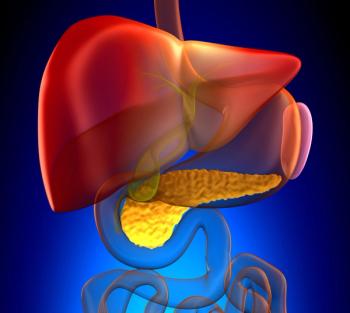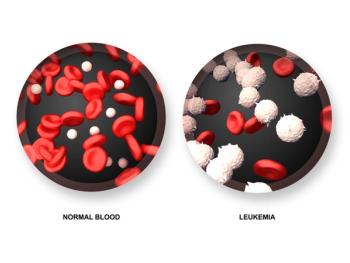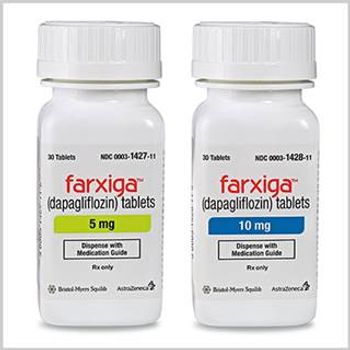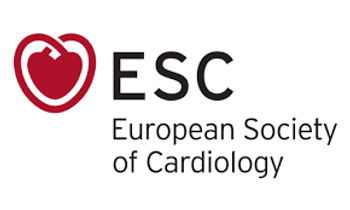
The findings have implications for survivorship care, as more patients are living longer due to the availability of immunotherapies.
Mary Caffrey is the Executive Editor for The American Journal of Managed Care® (AJMC®). She joined AJMC® in 2013 and is the primary staff editor for Evidence-Based Oncology, the multistakeholder publication that reaches 22,000+ oncology providers, policy makers and formulary decision makers. She is also part of the team that oversees speaker recruitment and panel preparations for AJMC®'s premier annual oncology meeting, Patient-Centered Oncology Care®. For more than a decade, Mary has covered ASCO, ASH, ACC and other leading scientific meetings for AJMC readers.
Mary has a BA in communications and philosophy from Loyola University New Orleans. You can connect with Mary on LinkedIn.

The findings have implications for survivorship care, as more patients are living longer due to the availability of immunotherapies.

Women who enter menopause before age 50 are substantially more likely to have a nonfatal cardiovascular event before they turn 60, and the risk grows the younger the women are when menstruation ends, according to a recent analysis.

More than 2 years after the FDA derailed the trajectory of its novel treatment system for type 2 diabetes (T2D), Intarcia Therapeutics today announced that regulators have accepted a resubmitted new drug application for the mini pump that delivers a continuous dose of exenatide.

A study last year pointed to empagliflozin as the best choice for patients who have type 2 diabetes and non-alcoholic fatty liver disease.

The mechanism studied affects a broad range of physiological responses and is now the focus of intense study by the pharmaceutical industry.

Diagnosis of hypertension was based on guidelines updated by the American College of Cardiology and the American Heart Association in 2017.

President Donald Trump has issued an executive order that will protect Medicare and bolster Medicare Advantage (MA) in response to Democrats' Medicare for All proposals.

The study was largely funded the National Institutes of Health, and results appeared in the Journal of the American Heart Association.

The new indication is based on results of the CREDENCE trial, which found that canagliflozin reduced the risk of renal failure or death by 30% in those that had both type 2 diabetes and diabetic kidney disease.

Data on the link between elevated serum neurofilament light chain and diabetes was presented at the 35th Congress of the European Committee for Treatment and Research in Multiple Sclerosis, held in Stockholm, Sweden.

A new concept for targeting insulin toward the liver could lead to people with diabetes needing less of it to control glycated hemoglobin (A1C) and avoid hypoglycemia.

The results of a study published last year from authors at Yale Diabetes Center suggest that rationing is more common than the healthcare system wants to admit. Senior author Kasia Lipska, MD, MHS, says the findings raise a whole new set of questions.

More than 70% of hospital data breaches include the theft of sensitive items like patients’ Social Security or credit card numbers, as well as birth dates, which could lead to identity theft or fraud, according to a new report.

Novo Nordisk officials believe the new therapy will fufill an unmet need for patients with type 2 diabetes and obesity who need a GLP-1 receptor agonist but do not wish to use an injectable drug.

Acute myeloid leukemia is the most common acute adult cancer diagnosed in the United States; 61,000 Americans are living with this disease and more than 10,000 will die of it this year.

Sessions and posters from the 35th Congress of the European Committee for Treatment and Research in Multiple Sclerosis discussed various ways to measure patient-reported outcomes in multiple sclerosis.

The leaders of the Energy and Commerce Committee sent letters to 3 private equity firms seeking information. The committee has already unanimously voted out the No Surprises Act to protect consumers.

A joint session of ECTRIMS and the European Academy of Neurology assesses important topics in measuring relapse and progression in multiple sclerosis (MS).

Results for ozanimod, which is under review by FDA and European regulators for treatment of relapsing multiple sclerosis (MS), were presented in poster sessions September 12, 2019, at ECTRIMS 2019, the 35th Annual Congress of the European Committee for Treatment and Research in Multiple Sclerosis, taking place in Stockholm, Sweden.

FDA recently accepted the Biologics Licensing Application for inebilizumab to treat a rare autoimmune condition, neuromyelitis optica spectrum disorder. The results for inebilizumab were presented at the 35th Annual Congress of the European Committee for Treatment and Research in Multiple Sclerosis, taking place in Stockholm, Sweden.

Speakers at a session at ECTRIMS 2019 on long-term outcomes in multiple sclerosis said that better therapies and improved understanding of the effect of comorbidities have improved outcomes. The session was part of the 35th Annual Congress of the European Committee for Treatment and Research in Multiple Sclerosis, taking place in Stockholm, Sweden.

Maria Trojano, MD, professor of neurology at the University of Bari, Italy, offered the opening lecture at ECTRIMS 2019, the 35th Annual Congress of the European Committee for Treatment and Research in Multiple Sclerosis, taking place in Stockholm, Sweden.

A poster featuring a post-hoc exploratory analysis of measures of thalamic volume from RADIANCE was presented September 11, 2019, at ECTRIMS 2019, the 35th Annual Congress of the European Committee for Treatment and Research in Multiple Sclerosis, taking place in Stockholm, Sweden.

Three studies published this year have examined the risks when patients with chronic pain abruptly stop taking opioids.

Dapagliflozin, sold by AstraZeneca as Farxiga, cut the risk of cardiovascular (CV) death and worsening of heart failure (HF) by 26% among patients with reduced ejection fraction alongside standard of care, according to results of a landmark phase 3 study presented Sunday at the European Society of Cardiology 2019 Congress. Results confirmed that the sodium glucose co-transporter 2 (SGLT2) inhibitor, already approved to treat type 2 diabetes (T2D), is just as effective in preventing CV death and HF events in patients who do not have T2D.

Data in the real-world study included a large share of patients over the age of 80, who are representative of those doctors see in clinical practice.

Diabetic retinopathy costs the United States $6.2 billion a year. Better screening techniques that can catch neurodegeneration at earlier stages have the potential to cut costs and improve quality of life for patients.

Coverage from the July 11, 2019, meeting of the Institute for Value-Based Medicine®, an initiative of The American Journal of Managed Care®. The meeting took place in Arlington, Virginia.

The findings suggest that a commonly used diabetes therapy, metformin, could be used to target specific proteins that trigger DNA repair.

Adding measurement of a key protein during metabolic assessment could help identify those at higher risk of heart attacks and strokes even if they have normal body mass index.

259 Prospect Plains Rd, Bldg H
Cranbury, NJ 08512
© 2025 MJH Life Sciences®
All rights reserved.
